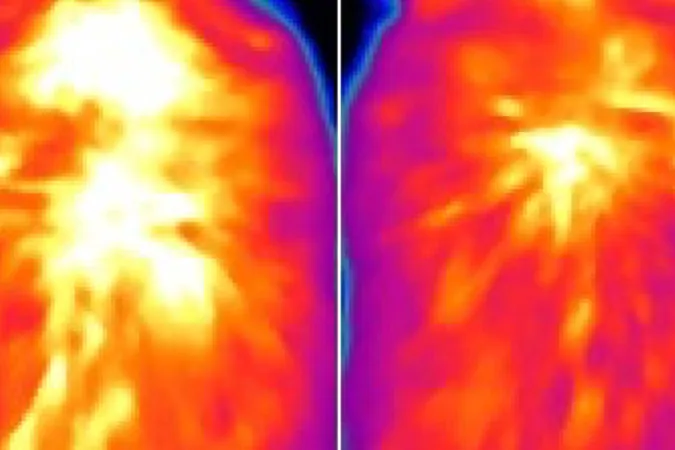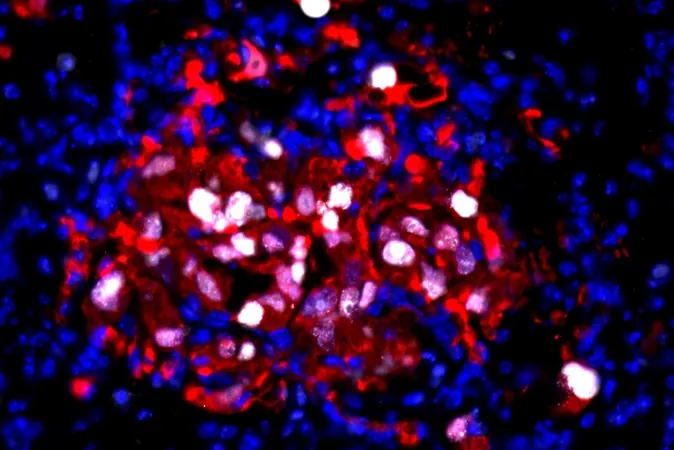
Revolutionary Discovery: How Brown Fat Could Help Combat Obesity
2025-09-17
Author: Rajesh
A Groundbreaking Study on Brown Fat's Potential
Researchers at Washington University School of Medicine in St. Louis have uncovered an innovative method to enhance the calorie-burning abilities of brown fat—a unique form of fat that serves as an energy furnace. This exciting study, conducted on mice, opens new pathways for addressing metabolic diseases like obesity and insulin resistance.
Published in the prestigious journal *Nature*, this research spotlights brown fat's critical role in transforming calories from food into heat, contrasting sharply with white fat that hoards energy for future use.
Boosting the Body's Metabolic Engine
The findings suggest that by activating brown fat, we could significantly boost calorie expenditure, potentially leading to more effective weight-loss strategies. Senior author Dr. Irfan Lodhi, an esteemed professor of medicine, notes, "This pathway we’ve identified could allow us to enhance the energy expenditure aspect of weight loss, making it easier for the body to shed calories through increased heat production."
Dr. Lodhi believes this method could foster sustainable weight loss, offering a more manageable alternative to the traditional approaches of diet and exercise.
Unveiling Alternate Heat Producers
Traditionally, it was understood that mitochondria—cellular powerhouses in brown fat—were responsible for its heat production via a molecule called uncoupling protein 1. However, prior research highlighted that mice lacking this protein could still burn calories, indicating other mechanisms at play.
This new study highlights the role of peroxisomes, cellular compartments crucial for fat processing, as alternative heat generators. Interestingly, exposure to cold temperatures led to a surge in peroxisomes in brown fat, suggesting they could compensate when mitochondrial function declines.
Research Results and Future Implications
The team discovered that these peroxisomes utilize a key protein known as acyl-CoA oxidase 2 (ACOX2) to convert fuel into heat. Mice that lacked ACOX2 exhibited lower body temperatures and pronounced difficulties in managing insulin and body weight on high-fat diets. Conversely, genetically modified mice producing excess ACOX2 thrived, showing enhanced heat production and better weight management.
This exciting revelation suggests a promising path forward: dietary interventions enriched with specific fatty acids could bolster this heat production in humans. Dr. Lodhi also hinted at the exploration of potential drug compounds that might directly activate ACOX2.
The Road Ahead
While the study is currently limited to mice, initial data suggests relevance to human metabolic health. Previous studies have associated higher levels of these fatty acids with lower body mass indices, igniting hope for future dietary or therapeutic strategies aimed at elevating ACOX2 activity to aid in weight loss and improve metabolic health.
As Dr. Lodhi and his team push forward with their research, the potential reemergence of brown fat as a powerful ally in our fight against obesity may soon be within our grasp.




 Brasil (PT)
Brasil (PT)
 Canada (EN)
Canada (EN)
 Chile (ES)
Chile (ES)
 Česko (CS)
Česko (CS)
 대한민국 (KO)
대한민국 (KO)
 España (ES)
España (ES)
 France (FR)
France (FR)
 Hong Kong (EN)
Hong Kong (EN)
 Italia (IT)
Italia (IT)
 日本 (JA)
日本 (JA)
 Magyarország (HU)
Magyarország (HU)
 Norge (NO)
Norge (NO)
 Polska (PL)
Polska (PL)
 Schweiz (DE)
Schweiz (DE)
 Singapore (EN)
Singapore (EN)
 Sverige (SV)
Sverige (SV)
 Suomi (FI)
Suomi (FI)
 Türkiye (TR)
Türkiye (TR)
 الإمارات العربية المتحدة (AR)
الإمارات العربية المتحدة (AR)